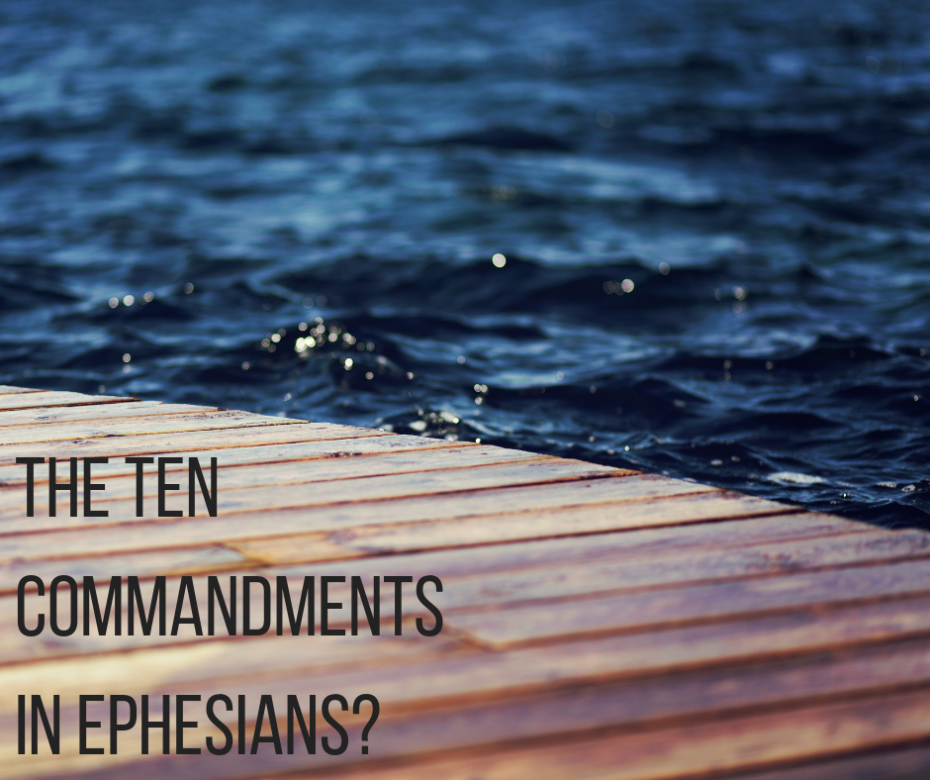I was reading through Ephesians last night, and in chapters 4-6, I began to notice that Paul restated several of the Ten Commandments.
Sometimes the restatement was explicit, such as when Paul explicitly quotes the command to honor your parents (Eph 6:1-3).
Other times, the restatement was implicit. Paul did not quote the Decalogue but cited the same moral principle behind it.
See what you think.
“Thou shalt have no other gods before Me”:
This I say, therefore, and testify in the Lord, that you should no longer walk as the rest of the Gentiles walk, in the futility of their mind, having their understanding darkened, being alienated from the life of God, because of the ignorance that is in them, because of the blindness of their heart (Eph 4:17-18).
For this you know, that no fornicator, unclean person, nor covetous man, who is an idolater, has any inheritance in the kingdom of Christ and God (Eph 5:5).
“Honor thy father and thy mother”:
Children, obey your parents in the Lord, for this is right. “Honor your father and mother,” which is the first commandment with promise: “that it may be well with you and you may live long on the earth.” (Eph 6:1-3).
“Thou shalt not murder”:
“Be angry, and do not sin”: do not let the sun go down on your wrath (Eph 4:26).
“Thou shalt not steal”:
Let him who stole steal no longer, but rather let him labor, working with his hands what is good, that he may have something to give him who has need (Eph 4:28).
“Thou shalt not bear false witness”:
Therefore, putting away lying, “Let each one of you speak truth with his neighbor,” for we are members of one another (Eph 4:25).
“Thou shalt not commit adultery”:
But fornication and all uncleanness or covetousness, let it not even be named among you, as is fitting for saints (Eph 5:3, emphasis added).
“Thou shalt not covet”:
But fornication and all uncleanness or covetousness, let it not even be named among you, as is fitting for saints (Eph 5:3, emphasis added).
Do you see it, too?
Don’t be surprised if many of the basic moral commands carry over from the Decalogue to the NT.
Since God is a holy God, with an unchanging moral character, we should fully expect that His moral demands will be the same across all Dispensations because His moral character is the same across all Dispensations. (In this sense, older theologians spoke about the lex aeterna, the eternal law.) That’s why Paul can prohibit lying, stealing, hating, fornicating, and idolatry, just like the Decalogue, without teaching that Christians are under the Decalogue. The same moral principles underlying the Ten Commandments, also underly part of the law of Christ, because they all come from God’s holy will.
You are not under those laws for your salvation, but you are under them to gain Jesus’ approval at the Bema.


